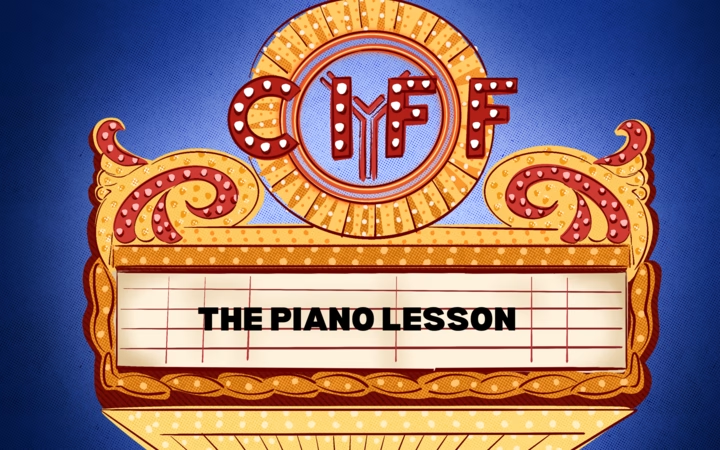“The Piano Lesson” is a theatrical play masquerading as a movie. Based on the 1987 play by August Wilson, the film adaptation is proof that sticking to a story’s theatrical roots can pay off on screen in incredibly powerful ways. More than that, it’s a story of family mythology and generational trauma hiding within one of the most compelling ghost stories translated for the screen in years.
The story takes place in Pittsburgh, 1936. A brother and sister clash over the family heirloom piano sitting unused in their living room. To one, it’s a chance at a new life, to the other, it’s a haunting reminder of the past. Lurking upstairs though is the ghost of the man who enslaved the Charles family, and every tap of the piano’s keys brings him back with a vengeance.
The film starts off with a bang, literally, as fireworks explode onto the screen with a dynamism that carries the audience through the rest of its roughly two-hour runtime. While barely any dialogue is spoken within those first ten minutes, it crafts a tense and visually stunning opening that sucks you into 1911 Mississippi.
The entire movie feels like a play, which makes sense considering it’s adapted from one. The sentiment holds true in everything, from the actors’ blocking that looks like a choreographed dance around the stages and sets to the dialogue that sounds like it should be followed by a direction stating who exits stage left.
The story is all encompassing and the theatrical parallels between the original work and the film make the audience feel like they’re watching the plot unfold from a theater in-the-round rather than a movie theater.
John David Washington’s performance as Boy Willie only adds to this dramatism. He takes the stage by storm with a boisterous performance that feels like it should win him a Tony. The silver screen can’t seem to contain his energy and not once does his characterization feel anything less than perfect.
Samuel L. Jackson is impossible to ignore in any movie, his on-screen presence is always palpable no matter the role, but here he seems to be content in the background until his big monologue. It does feel like “The Piano Lesson” could be underusing one of the greatest actors alive but in his retelling of the Charles family history, he makes it clear that his role as Doaker is no small feat.
The real breakout performance though is Danielle Deadwyler as Berniece. During each of her big monologues, Deadwyler’s lip may tremble with heartbreaking emotion but her performance never does.
While the film is brilliant from the beginning, the emotion really sinks its teeth into the viewer during a scene where four of the ensemble cast members come together in a moment of drunken adrenaline to sing “Berta, Berta.” Sitting around the kitchen table, each actor gets his moment to bask in the camera’s attention while soundtracked by stomping feet and passionate singing. “The Piano Lesson” isn’t afraid to linger in the moment of sudden juvenility before sinking back down to its sobering and heartbreaking reality. The scene is so powerful that you almost wish for an intermission just so the house lights will remind you of reality. Instead, the movie goes on, and you’re left to pick up the pieces of your shattered soul.
“The Piano Lesson” is one of those movies you want to sit in longer than the theater ushers will allow you to. With riveting performances from its small but mighty cast and an already-captivating source material to draw on, the film stuns as both a ghostly thriller and deep dive into themes of legacy. In the same way the ghosts of the Charles family haunt them, the beauty of “The Piano Lesson” will haunt you.
*This film screened at the 60th Chicago International Film Festival
Related Stories:
- ‘Megalopolis’ review: A baffling, unhinged epic unlike anything before or since
- “Stress Positions” review – Theda Hammel stuns with 2024’s funniest film
- ‘A Different Man’ review: Sebastian Stan and Adam Pearson play two sides of the same coin
Support Student Journalism!
The DePaulia is DePaul University’s award-winning, editorially independent student newspaper. Since 1923, student journalists have produced high-quality, on-the-ground reporting that informs our campus and city.
We rely on reader support to keep doing what we do. Donations are tax deductible through DePaul's giving page.


